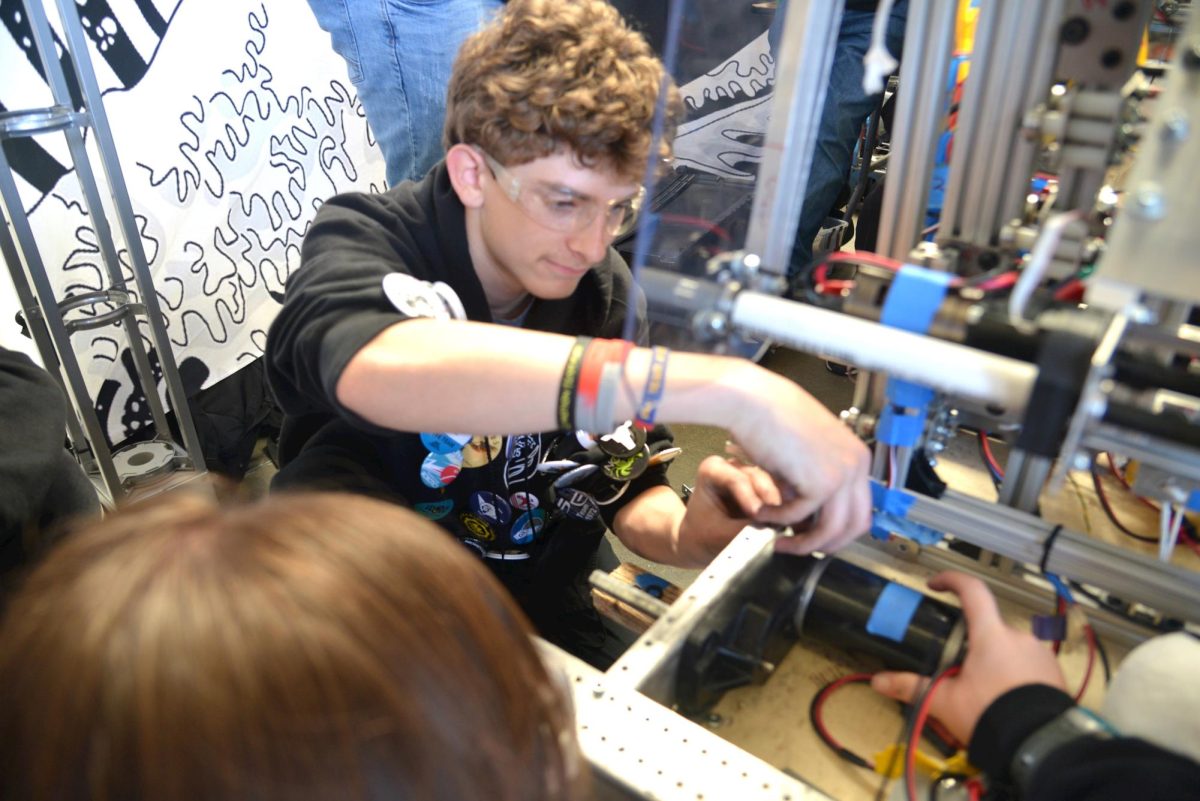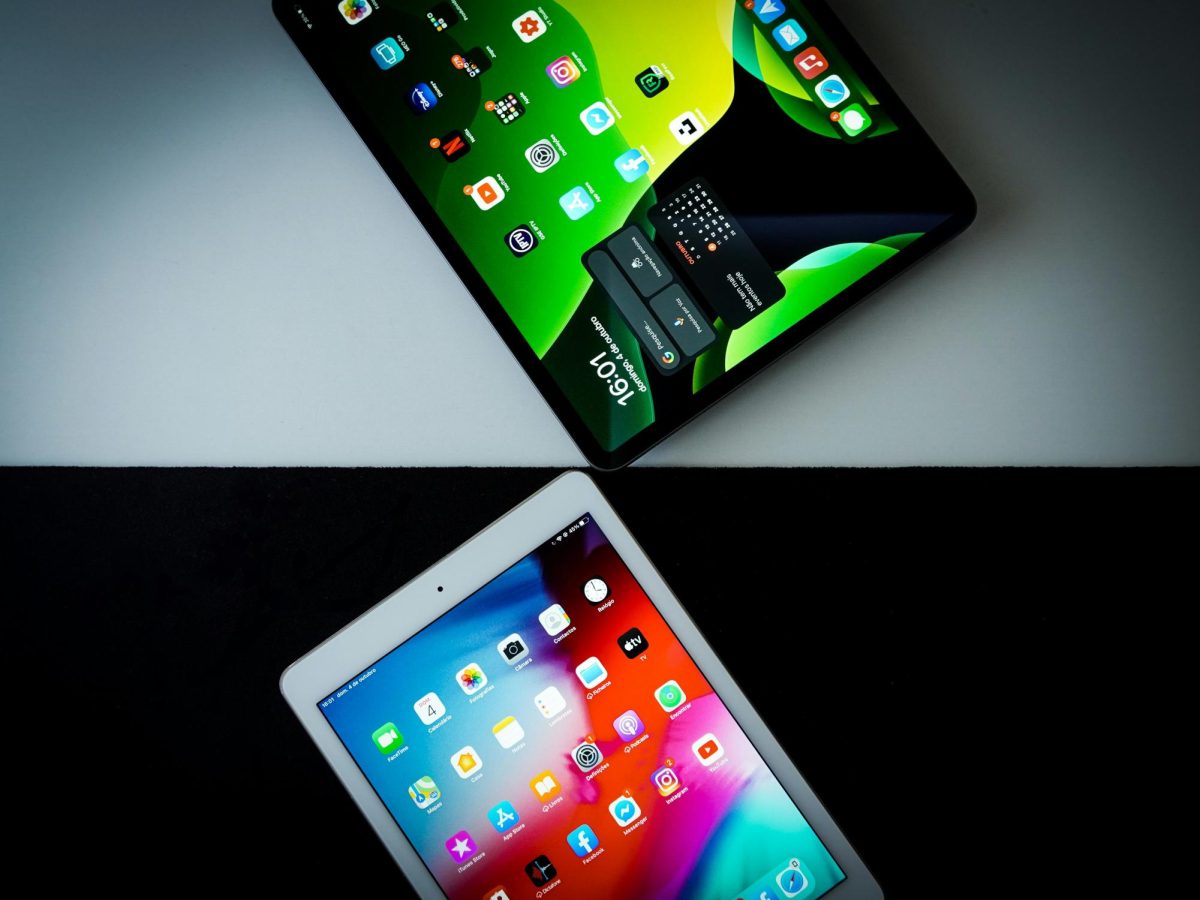Embracing Online Learning in the Age of Technology
Aaron Dumas ‘24, Rick Lunch ‘23, and Anthony Nguyen’24 show their support for technology in schools. “Technology allows us to interact, create, and work in ways that are not achievable with pen and paper,” Aaron says.
In an age where technological advancements have taken over most aspects of our lives (including education), there has been much controversy about the effectiveness of iPads, laptops, and other pieces of technology in the classroom. Although the traditional pen and paper methods have seemed to work for many years, the times are changing, and so should we.
Schools like CCHS should continue to foster technology for schoolwork as it can prepare students for a digital future that is not going away anytime soon. One of the biggest advantages of iPads at our school is that it gives students a sense of how to be productive with technology constantly at their fingertips. Marissa Mcsweeny ‘23 believes that, “it is important for students to learn the self control of staying on task and keeping up with the technological developments as our world is changing. I think that moving back to pen and paper would be helpful for some students, but our society is continuing to develop and it is important to keep up with it and adapt to it.” By using technology in the classroom, students are given the opportunity to evolve their management skills as they can learn to balance their fun time on technology with their work time on technology. Schools can also help students develop the skills and knowledge that is necessary to confidently work in a digital setting. Familiarity with digital tools, such as Google Docs, spreadsheets, and presentation softwares, enhances a student’s critical thinking and problem-solving abilities. Furthermore, collaborating with other students on digital platforms prepares them for the collaborative work environments they could encounter in their future careers.
In addition, every student has a different learning style and preference. Using technology in school allows teachers to be able to customize their content and create assignments that encourage students to use their technology in a way that helps their learning. Lucy Allen ‘23 believes that, “schools should continue to use iPads because there are so many excellent resources online and in the App Store that can help students learn and grow. The world is becoming more technological so having students work on iPads prepares them for many of their future endeavors.” With technological schoolwork, teachers are given the opportunity to support students in a way that would not be possible if every assignment was on pen and paper. “Technology allows us to interact, create, and work in ways that are not achievable with pen and paper,” says Aaron Dumas ‘24.
While accepting technology in education, it is important to address concerns such as video game distractions and screen time management. Schools should be responsible for creating clear guidelines about which apps and sites are allowed and not allowed to be used on school technology. Faculty should also be held accountable for teaching students how to use their devices responsibly and productively. Although many teachers believe that schools should switch back to traditional methods of learning to help eliminate academic dishonesty, it is important to remember that the benefits of technology far outweigh the benefits of pen and paper school work. Academic Coaching teacher Mr. Faraimo believes that, “We should go back to pen and paper to reduce the chances of plagiarism and cheating.” Despite the fact that technology can encourage cheating, it is important to remember that it is the student’s responsibility to take control of their learning and practice academic integrity. Balancing digital learning with hands-on experiments, physical exercises, and in person face-to-face conversations assures a well-rounded educational experience for all students involved.
The integration of technology in education offers many benefits that far outweigh traditional pen-and-paper methods. By preparing students for the real world, improving critical thinking skills, and allowing customized learning opportunities, schools can help their students adapt to the world in an age of technology. Technology can transform education and help shape students into leaders who are ready to take on any challenges or hardships that may come their way.





















































